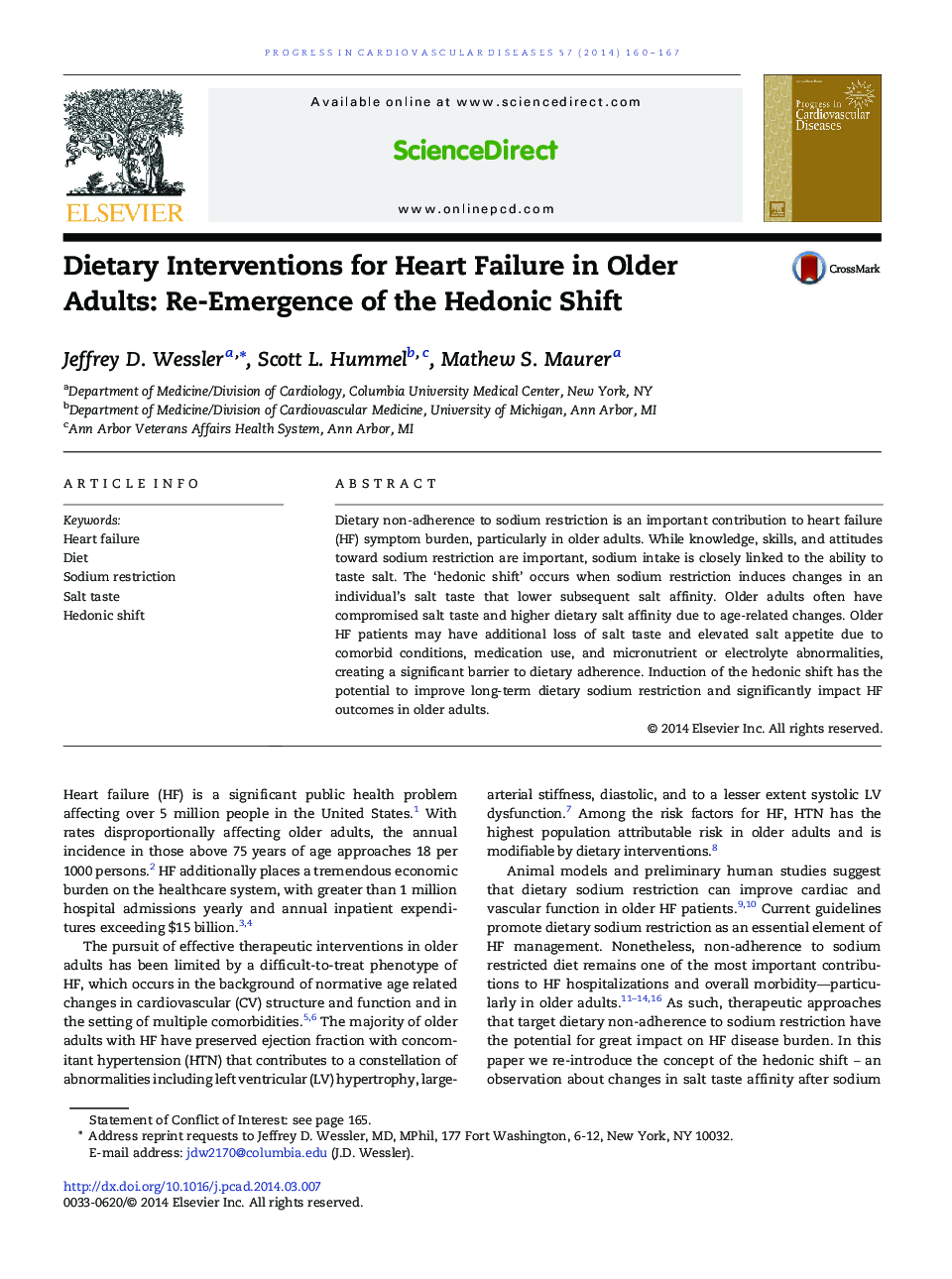| Article ID | Journal | Published Year | Pages | File Type |
|---|---|---|---|---|
| 3006422 | Progress in Cardiovascular Diseases | 2014 | 8 Pages |
Dietary non-adherence to sodium restriction is an important contribution to heart failure (HF) symptom burden, particularly in older adults. While knowledge, skills, and attitudes toward sodium restriction are important, sodium intake is closely linked to the ability to taste salt. The ‘hedonic shift’ occurs when sodium restriction induces changes in an individual’s salt taste that lower subsequent salt affinity. Older adults often have compromised salt taste and higher dietary salt affinity due to age-related changes. Older HF patients may have additional loss of salt taste and elevated salt appetite due to comorbid conditions, medication use, and micronutrient or electrolyte abnormalities, creating a significant barrier to dietary adherence. Induction of the hedonic shift has the potential to improve long-term dietary sodium restriction and significantly impact HF outcomes in older adults.
